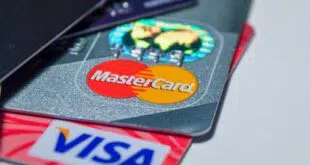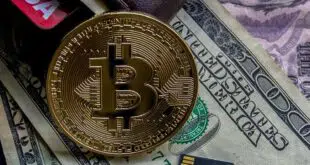Merchants want lower interchange. In their Shangri-la, interchange would be negative, meaning merchants would be paid to accept credit and debit cards. This is not unknown in the real world. For example, Australia’s national debit network for many years had negative interchange. Merchants want to be able to freely surcharge …
Read More »COMMENTARY: Why Merchants’ Legal Assault on Acceptance Costs Is Anti-Consumer: Part I
While merchants, like consumers, love credit and debit cards, they don’t like having to pay to accept them. It’s human nature to want to pay less for products and services, no matter how good they are. To reduce payment-acceptance fees, merchants have brought a battery of antitrust lawsuits against Mastercard …
Read More »COMMENTARY: Don’t Take It Any More! It’s Time for the Payments Industry to Fight Back (Part II)
(Editor’s note: This is Part II of a two-part article. Part I appeared Thursday.) Interchange fees paid by merchants are the credit card industry’s second-largest revenue source. For debit cards and neobanks, these fees are a primary revenue source. The 2010 Dodd-Frank Act imposed price controls on debit interchange fees …
Read More »COMMENTARY: Don’t Take It Any More! It’s Time for the Payments Industry to Fight Back (Part I)
The Cato Institute’s Nicholas Anthony warned recently that the Biden Administration is waging “a war on (payments-industry) prices.” The payments industry provides services funded by a range of fees paid by consumers and businesses. Demagogic regulators and politicians pillory industry fees as exploitative, as “junk fees,” and “a tax.” These …
Read More »COMMENTARY: Cap One’s Bid for Discover Will Lift Many Boats
Capital One’s proposed $35.3-billion acquisition of Discover will be a thunderclap for the debit-card, retail-banking, and payment-network markets. The Discover network has long been the number-five U.S. retail-payment network, after Visa, Mastercard, American Express, and PayPal. Since its acquisition of Diners Club from Citi in 2008, Discover has struggled as …
Read More »COMMENTARY: A Rigged International Payments Market Is Bad for the U.S.—And Bad for Free Trade
On Nov. 20, 2023, Mastercard Inc. announced that its Chinese joint venture with Netsunion to process domestic payments had been approved by the People’s Bank of China and the National Administration of Financial Regulation. Was it a victory for, or a mockery of, free trade? If this landmark approval were …
Read More »Worldline is Partly to Blame for Its Stock’s Sudden Collapse
Like a thunderclap, on Oct. 25 the stock price of continental Europe’s biggest payment processor, Worldline, plummeted 59%. It’s down a whopping 88% from its high in April 2021. Macroeconomic conditions are to blame, but so are Worldline-specific factors. The reign of easy money is over. Easy money inflates valuations. …
Read More »COMMENTARY: Could PayPal’s Latest Fee Boost Make It the Merchant Lobby’s Next Target?
The yin and yang of political, and ferociously commercial, PayPal was vividly on display with its announcement last month of a massive price hike. The e-commerce phenom attaches itself to an array of woke causes but remains a wonderfully hard-nosed commercial enterprise, keen to be fully compensated for the enormous value …
Read More »COMMENTARY: Congress Could Scrap Debit Pricing Caps—if It Feels Enough Heat
With his eponymous Durbin Amendment, passed into law just over a decade ago, Illinois’s senior senator intended to hurt large banks, along with Visa and Mastercard. The text, however, couldn’t be as expressly punitive as Durbin might have liked. He would likely have preferred capping debit interchange and network acquirer …
Read More »COMMENTARY: With Digital Currency, Regulators Should Let Markets Pick Winners
Launched in 1989, Digicash introduced the first cryptocurrency. In the 1990s, it was considered leading-edge payments technology. But physical and digital currencies are payment networks. In payment systems, good technology is neither sufficient nor generally the biggest hurdle. No matter how good the technology, without critical mass they’re worth little. …
Read More »




